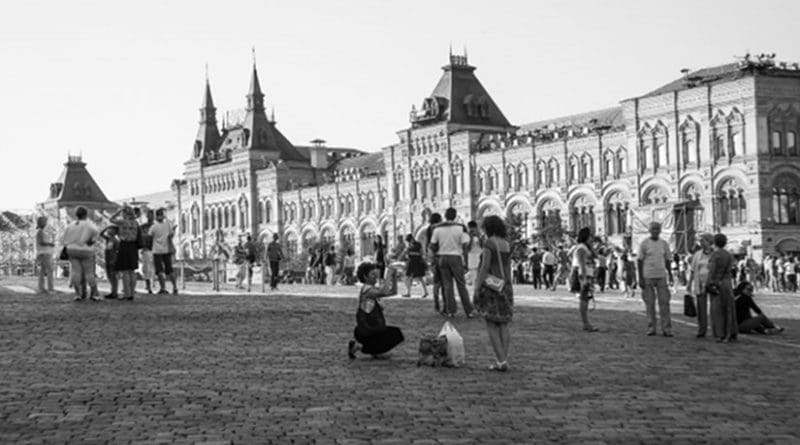A Third Of Russia’s Poor Are Children Under 16 – OpEd
By Paul Goble
A third of those in Russia classified as poor are children under the age of 16, a dramatic increase of 25 percent in the last decade and the direct result of government policies which have pushed more children into poverty, according to Anastasiya Baskatova of Nezavisimaya gazeta (ng.ru/economics/2018-08-01/2_7279_bednost.html).
“Poverty among children has become a systemic problem,” one that the authorities have helped to create by their specific policies which focus mostly on preventing poverty among the elderly and that is likely to get worse in the future as the country fails to achieve the amount of economic growth needed to lessen this plague, the economic journalist says.
According to a new study by the Higher School of Economics, “more than 60 percent of the poor in Russia are families with children.” In fact, since the early 1990s, hildren have become 1.52 times more likely than Russians as a whole to fall into poverty and to remain there for long periods of time.
Liliiya Ovcharova, one of the authors of the study, argues that “the increase of the fraction of children among the poor is connected with the fact that in Russia, social programs directed at fighting poverty re directed primarily in support of the elderly” even as many of the programs that existed in Soviet times to help children have been cut back or eliminated.
Vladimir Putin’s May decrees do nothing to address this, Ovcharova says, or they are based on assumptions that cannot possibly be realized. For example, to cut poverty by half would require economic growth of at least eight percent a year while no one thinks the Russian economy can grow by more than four, even under the best of conditions.
The main conclusion of the Higher School of Economics report is that there is “a very high degree of probability” that poverty among children is something that is going to be around for a very long time and may get worse before there is any chance that it will get better. There are things the government could do but it has chosen not to – and is unlikely to change.

